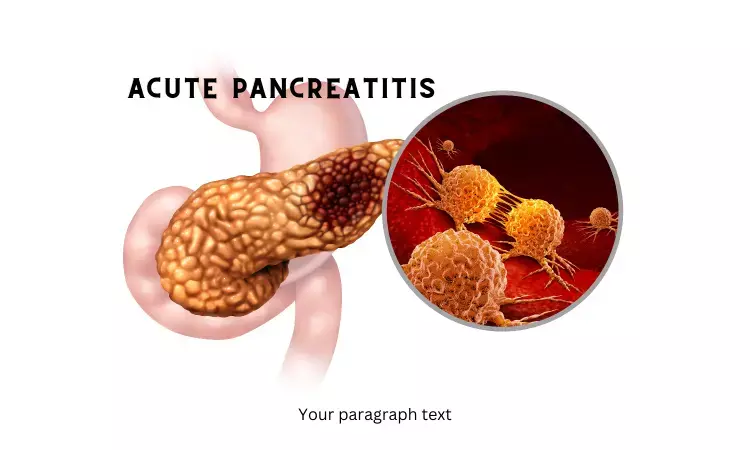- Home
- Medical news & Guidelines
- Anesthesiology
- Cardiology and CTVS
- Critical Care
- Dentistry
- Dermatology
- Diabetes and Endocrinology
- ENT
- Gastroenterology
- Medicine
- Nephrology
- Neurology
- Obstretics-Gynaecology
- Oncology
- Ophthalmology
- Orthopaedics
- Pediatrics-Neonatology
- Psychiatry
- Pulmonology
- Radiology
- Surgery
- Urology
- Laboratory Medicine
- Diet
- Nursing
- Paramedical
- Physiotherapy
- Health news
- Fact Check
- Bone Health Fact Check
- Brain Health Fact Check
- Cancer Related Fact Check
- Child Care Fact Check
- Dental and oral health fact check
- Diabetes and metabolic health fact check
- Diet and Nutrition Fact Check
- Eye and ENT Care Fact Check
- Fitness fact check
- Gut health fact check
- Heart health fact check
- Kidney health fact check
- Medical education fact check
- Men's health fact check
- Respiratory fact check
- Skin and hair care fact check
- Vaccine and Immunization fact check
- Women's health fact check
- AYUSH
- State News
- Andaman and Nicobar Islands
- Andhra Pradesh
- Arunachal Pradesh
- Assam
- Bihar
- Chandigarh
- Chattisgarh
- Dadra and Nagar Haveli
- Daman and Diu
- Delhi
- Goa
- Gujarat
- Haryana
- Himachal Pradesh
- Jammu & Kashmir
- Jharkhand
- Karnataka
- Kerala
- Ladakh
- Lakshadweep
- Madhya Pradesh
- Maharashtra
- Manipur
- Meghalaya
- Mizoram
- Nagaland
- Odisha
- Puducherry
- Punjab
- Rajasthan
- Sikkim
- Tamil Nadu
- Telangana
- Tripura
- Uttar Pradesh
- Uttrakhand
- West Bengal
- Medical Education
- Industry
Low estimated glomerular filtration rate increases all-cause mortality in acute pancreatitis

Acute pancreatitis (AP) is a common gastrointestinal inflammatory disorder, which is costly and difficult to manage, and there is no pathogenetic treatment. Severe AP may develop in 20% of patients, with a reported mortality rate of 30% due to pancreatic necrosis and organ failure.
BMC anesthesiology reports a study by Fang Gong and team, that aimed to explore the association between estimated glomerular filtration rate (eGFR) and all-cause mortality in acute pancreatitis (AP) admission to intensive care units and found a negative correlation with each other.
This study was a retrospective cohort analysis based on the Medical Information Mart for Intensive Care III database. The eGFR was calculated based on Chronic Kidney Disease Epidemiology Collaboration equation. Cox models with restricted cubic spline functions were used to evaluated the association of eGFR with all-cause mortality.
The key findings of the study are
• The mean eGFR was 65.93 ± 38.56 ml/min/1.73 m2 in 493 eligible patients. 28-day mortality was 11.97% (59/ 493), which decreased by 15% with every 10 ml/min/1.73 m2 increase in eGFR.
• The adjusted hazard ratio (95% confidence interval) was 0.85 (0.76–0.96).
• A non-linear association was proved between eGFR and all-cause mortality. When eGFR < 57 ml/min/1.73 m2, there was a negative correlation between eGFR and 28-day mortality, hazard ratio (95% CI) was 0.97 (0.95, 0.99).
• The eGFR was also negatively correlated with in-hospital and in-ICU mortality. Subgroup analysis confirmed that the association between eGFR and 28-day mortality in different characteristics was stable.
Fang Gong and team concluded that “The eGFR was negatively correlated with all-cause mortality in AP when eGFR is less than the threshold inflection point.”
Reference: Gong, F., Zhou, Q., Gui, C. et al. Association of estimated glomerular filtration rate and all-cause mortality in acute pancreatitis: a retrospective analysis. BMC Anesthesiol 23, 121 (2023). https://doi.org/10.1186/s12871-023-02074-4
MSc. Neuroscience
Niveditha Subramani a MSc. Neuroscience (Faculty of Medicine) graduate from University of Madras, Chennai. Ambitious in Neuro research having worked in motor diseases and neuron apoptosis is interested in more of new upcoming research and their advancement in field of medicine. She has an engrossed skill towards writing and her roles at Medical dialogue include Sr. Content writer. Her news covers new discoveries and updates in field of medicine. She can be reached at editorial@medicaldialogues.in
Dr Kamal Kant Kohli-MBBS, DTCD- a chest specialist with more than 30 years of practice and a flair for writing clinical articles, Dr Kamal Kant Kohli joined Medical Dialogues as a Chief Editor of Medical News. Besides writing articles, as an editor, he proofreads and verifies all the medical content published on Medical Dialogues including those coming from journals, studies,medical conferences,guidelines etc. Email: drkohli@medicaldialogues.in. Contact no. 011-43720751


